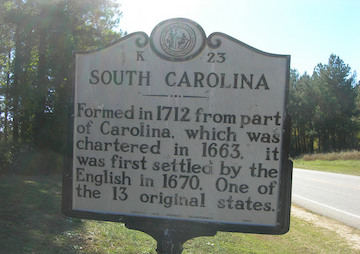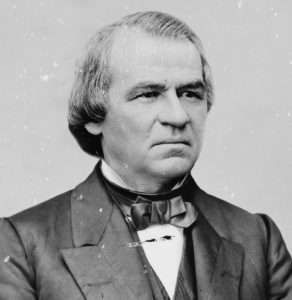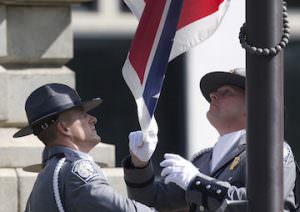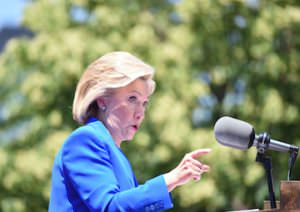How Dixie Rules the GOP
The Super Tuesday primaries underscore how super Southern our presidential nominating process has become. Jimmy Emerson, DVM
/ CC BY 2.0
Jimmy Emerson, DVM
/ CC BY 2.0
The Super Tuesday primaries underscore how super Southern our presidential nominating process has become. This makes our way of picking standard-bearers unrepresentative of the country as a whole. In particular, it sharply reduces the influence of the great American Midwest even though the region’s states are among the most important general-election battlegrounds.
Southernization is a special problem for Republicans because their Southern supporters tend to be far more socially conservative than the rest of the party or the country. Southern politics is also more deeply polarized around race, giving backlash candidates a leg up. The GOP’s slide rightward creates electoral difficulties for it in presidential elections and is the central factor in Washington’s inability to find consensus on much of anything.
True, the whole carnival starts in Iowa, which is as Midwestern as you can get. But the caucus system gives more conservative Iowa Republicans an outsized influence because white evangelicals play a disproportionate role in what is a relatively low-turnout contest.
It is to the evangelicals’ credit as democratic citizens that they organize, mobilize and participate. But their civic virtuousness only makes the final result less reflective of opinion in the party, in Iowa itself and elsewhere.
New Hampshire comes next, and its voters frequently reach verdicts at odds with those Iowa renders. This means that South Carolina often plays a tie-breaking role on the GOP side. Talk about shifting the dialogue right: The site of the opening skirmish of the Civil War is not only one of the most conservative states in the nation; it is also one of our most racially divided polities.
All of 1 percent of this year’s Palmetto State Republican primary voters were African-American, according to the network exit poll — yes, 1 percent. Some 96 percent were white.
The matter of diversity is why the Southernized process is less problematic for Democrats. Having the South vote early gives the party’s large and loyal African-American constituency a significant role in choosing a nominee. In Hillary Clinton’s sweep of Saturday’s South Carolina primary, black voters cast about 60 percent of the ballots and gave her a margin of roughly 6-to-1 over Bernie Sanders, according to exit polls reported by ABC.
Pushing Nevada’s voting dates up has diversified the calendar a bit, but now we confront Super Tuesday. It includes primaries in Alabama, Arkansas, Georgia, Oklahoma, Tennessee, Texas and Virginia. Yes, this Southern-fried, hickory-smoked mix is leavened by primaries in Massachusetts and Vermont, caucuses in Colorado and Minnesota, and, on the Republican side, a “preference poll” in Alaska. But there’s a reason why the day is often called the “SEC primary,” after the Southeastern college sports conference.
Not until March 8 does a big Midwestern state (Michigan) vote, and not until March 15 do Illinois and Ohio weigh in. Wisconsin doesn’t hold its primary until April 5, and Indiana will not be casting its ballots until May 3.
The Dixiefied calendar is now an issue in Republican presidential maneuvering, with the possibility that the Midwest would be further disenfranchised. Republican honchos may have presided over a party that “brought to life” and “fed” the “Frankenstein monster” they see in Donald Trump, as Robert Kagan wrote in The Washington Post recently. Never mind. The feckless establishmentarians now have the temerity to tell Ohio Gov. John Kasich that he should do his part in their belated anti-Trump operation by dropping out in support of Florida Sen. Marco Rubio — even though Rubio has yet to win a single primary.
Kasich is saying no dice, and he is wholly right to insist that his own base be heard from before he calls it a day. There’s a strong case that Kasich is far better prepared to be president than Rubio is, and that Kasich’s tonally (and, to some degree, substantively) more moderate brand of conservatism has more appeal outside Republican ranks than Rubio’s narrow conservative orthodoxy.
In any event, it’s clear that if the GOP’s powers-that-be forced Kasich out before Michigan and Ohio voted, they would be confirming for all to see that their party only has room for Southerners (Rubio and Texas Sen. Ted Cruz) or, in the case of Trump, Northerners who speak the Republican South’s language on immigration, race and nationalism.
High-minded thinkers regularly bemoan the sharp polarization of American politics and wring hands earnestly over why this has come to pass. One of the principal causes is the Southernization of Abraham Lincoln’s party, and our primary process only makes it harder for those who would reverse the trend.
Your support is crucial…With an uncertain future and a new administration casting doubt on press freedoms, the danger is clear: The truth is at risk.
Now is the time to give. Your tax-deductible support allows us to dig deeper, delivering fearless investigative reporting and analysis that exposes what’s really happening — without compromise.
Stand with our courageous journalists. Donate today to protect a free press, uphold democracy and unearth untold stories.




You need to be a supporter to comment.
There are currently no responses to this article.
Be the first to respond.